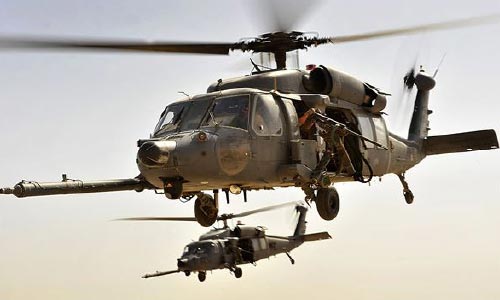GHAZNI - For hard-pressed Afghan troops, uncertainty over a planned withdrawal of U.S. forces has raised fears that they will lose American air support, one of the few decisive advantages over increasingly confident Taliban fighters.Afghanistan has been shaken by reports that more than 5,000 U.S. troops may pull out in the coming months in a reversal of a strategy announced in 2017 to step up pressure on the Taliban to accept peace negotiations.
More than 14,000 American troops are serving in Afghanistan as part of the NATO-led Resolute Support training and advisory mission and a separate counterterrorism operation mainly fighting Islamic State and Al Qaeda.
While peace talks between U.S. officials and Taliban representatives continue, it is unclear which troops may be withdrawn and whether they will go before a permanent ceasefire.
For frontline Afghan forces, one fear prevails.
SPONSORED
“If air support from the Americans is stopped, it will be a disaster for us,” said Shamul Haq, a policeman in Ghazni, a central Afghan city that was overrun by hundreds of Taliban fighters in August who were driven off with the help of U.S. air strikes.
More than 28,000 Afghan soldiers and police have been killed since NATO ended its combat mission in 2014, and U.S. commanders say the losses are “unsustainable”. Despite peace talks, fierce fighting has continued and dozens of troops are killed and wounded every day.
Poor leadership, low pay and irregular supplies in the face of Taliban fighters armed with sophisticated weaponry, including night vision gear, have demoralized Kabul’s frontline troops.
While unable to take a major city, the Taliban have increased their hold in rural areas, and now control or contest more than a third of the country, according to U.S. estimates, and much more by less conservative reckoning.
“It is not possible to fight with an empty stomach and less weapons and ammunition than the Taliban,” said Ekranuddin, a soldier in Ghazni, who like many Afghans, goes by one name.
No matter how bad things got for their frontline soldiers, Afghan commanders at least knew they could rely on American air power to prevent a stalemate from turning into a rout.
Since 2017, U.S. air strikes have intensified to levels not seen since the height of the NATO combat mission in 2011, when there were more than 100,000 U.S. troops in Afghanistan. When the Taliban threatened to take the cities of Farah and Ghazni this year, U.S. air strikes were decisive in pushing them back.
Even as the insurgents tightened their grip on the countryside, hundreds of their fighters, including a string of top field commanders, have been killed by American jets, drones and helicopter gunships.
While the air strikes have drawn scrutiny and criticism from human rights activists and the United Nations for causing civilian casualties, Afghan soldiers see them as a blessing.
“We have the ability to fight the Taliban and the Americans weren’t usually with us, but we strongly need their air support because it always gives us the upper hand,” said Ekranuddin.“NOT ON THEIR FEET”
With details of any troop withdrawals yet to be announced, a reduction in air support is not certain as a four-year, $7 billion training and equipment programme for Afghanistan’s air force is only half complete.
The Afghan air force, including A-29 ground attack planes and rocket-equipped MD-530 helicopters, regularly supports Afghan forces and conducts about half of all air strikes.
Despite billions of dollars in aid, its ability to support units and keep them supplied in Afghanistan’s harsh terrain relies heavily on international help.
Afghan government spokesmen have downplayed the potential impact of a U.S. withdrawal, noting that Afghan troops carry out nearly all combat operations.
However, General Kenneth McKenzie, nominated to lead U.S. Central Command, warned last month that if American forces left “precipitously right now, I do not believe they (Afghan forces) would be able to successfully defend their country”.
While American officers working with Afghan troops praise their bravery and fighting spirit, chronic problems remain with organisation, logistics and air supply - all elements vital to keeping an organised force in the field.
“We have sufficient forces but we will need foreign forces in air support and to assist and train Afghan forces,” said General Mohammad Naseem Sangin, an infantry brigade commander in Ghazni. “If air strikes are reduced or stopped, it will be a concern for us because Afghan forces are not on their feet yet.”
At a recent meeting with U.S. officials, Afghan President Ashraf Ghani said U.S. air support was vital.
“We can hold the ground, if you cover us from the skies,” he said, according to a senior official briefed on the meeting. (Reuters)
Home » Afghanistan » Afghan Troops Fear Loss of Air Support if U.S. Pulls out Forces
Afghan Troops Fear Loss of Air Support if U.S. Pulls out Forces

